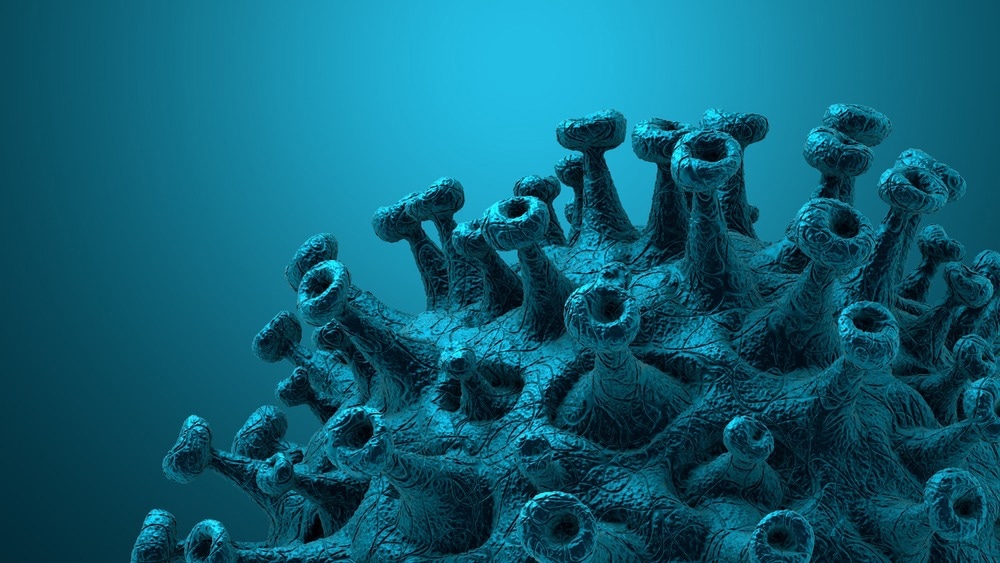In a recent study posted to the bioRxiv* server, researchers used a non-human primate model to show that Sotrovimab, a commercial monoclonal antibody (mAb) also known as Xevudy, was fully effective against severe acute respiratory syndrome coronavirus 2 (SARS-CoV-2) Omicron BA.5 sub-lineage and its derivatives, such as BQ.1.1.
 Study: Sotrovimab retains activity against SARS-CoV-2 Omicron variant BQ.1.1 in a non-human primate model. Image Credit: CROCOTHERY/Shutterstock
Study: Sotrovimab retains activity against SARS-CoV-2 Omicron variant BQ.1.1 in a non-human primate model. Image Credit: CROCOTHERY/Shutterstock

 *Important notice: bioRxiv publishes preliminary scientific reports that are not peer-reviewed and, therefore, should not be regarded as conclusive, guide clinical practice/health-related behavior, or treated as established information.
*Important notice: bioRxiv publishes preliminary scientific reports that are not peer-reviewed and, therefore, should not be regarded as conclusive, guide clinical practice/health-related behavior, or treated as established information.
Background
Omicron subvariants have acquired multiple receptor-binding domain (RBD) mutations resulting in higher angiotensin-converting enzyme 2 (ACE2)-binding affinities, and related changes, such as increased transmission efficiency and potential to evade anti-SARS-CoV-2 neutralizing antibodies (nAbs).
The exceptional immune-evasion potential of Omicron BA.5 subvariants, especially BQ.1.1, the currently circulating variant in Europe, has also limited the mAb-based therapeutic options to treat patients suffering from severe coronavirus disease 2019 (COVID-19).
Parent antibody of Sotrovimab, S309, protected mice from a BQ.1.1 challenge (dosage 10 to 30mg/kg). Likewise, seven to 14mg/kg dose of Sotrovimab protected hamsters from a BQ.1.1 challenge. Even Sotrovimab-bound Omicron subvariants in vitro promote fragment crystallizable effector functions.
However, there is an urgent need for more data on its in vivo efficacy. Then, it could be recommended, alongside nirmatrelvir-ritonavir therapy, as a treatment option for COVID-19 patients at a higher risk of progression to severe illness.
About the study
In the present study, researchers used three female cynomolgus macaques (M. fascicularis), tagged M1 to M3, aged 14-15 years, for in vivo experiments with Sotrovimab. They intravenously administered 10 milligrams (mg) of Sotrovimab per kilogram (kg) weight of the test animal 96 hours before the SARS-CoV-2 challenge.
The team challenged test animals with 1x105 plaque-forming units (PFU) of Omicron BQ.1.1 subvariant via intranasal (1/10) and intratracheal (9/10) routes using a prespecified experimental protocol. They used 0.04 mg/kg animal weight of atropine for premedication and ketamine with medetomidine (5mg and 0.05 mg/kg) for anesthesia. They monitored test animals for heart and respiratory rates and oxygen levels every ten minutes from treatment initiation until 30 minutes.
Next, they quantified Sotrovimab in the serum of NHPs at days one, four, eight, and 11 post–inoculation (p.i.) using the commercial enzyme-linked immunosorbent assay (ELISA), with results presented in binding antibody units per milliliter (BAU/mL) converted to microgram (μg)/mL. In addition, they quantified genomic viral ribonucleic acid (gRNA) using reverse transcription-polymerase chain reaction (RT-PCR) to monitor Sotrovimab efficacy.
The team regularly collected tracheal fluids and blood samples after the challenge, while Broncho alveolar lavages (BAL) at three and 10 d.p.c. They followed NHPs for behavior assessment and clinical scores during the infection duration, including their blood cell counts and hemoglobin.
Results and conclusion
Two days post-challenge (d.p.c), the authors observed lymphopenia in all control animals and two of the three test animals. However, they did not record any adverse effects of p.i. The control animals had detectable levels of gRNA in tracheal fluids, with peak loads reaching of 5.94 log10 at two d.p.c. and 5.67 log10 copies/mL at three d.p.c. These animals also had SARS-CoV-2 gRNA at three d.p.c. in the BAL. Conversely, the three test animals had SARS-CoV-2 gRNA below detectable levels or the limit of detection (LoD) in the BAL and trachea fluids.
Sotrovimab showed poor inhibitory activity against Omicron variants, especially BA.2, in preliminary in vitro studies. Thus, authorities withdrew it from the therapeutic panel of mAbs used to treat COVID-19. However, in the present study, researchers demonstrated it offered complete protection to NHPs infected with Omicron BQ.1.1. This raises the possibility of using Sotrovimab in humans, especially those with contraindications to nirmatrelvir-ritonavir therapy.

 *Important notice: bioRxiv publishes preliminary scientific reports that are not peer-reviewed and, therefore, should not be regarded as conclusive, guide clinical practice/health-related behavior, or treated as established information.
*Important notice: bioRxiv publishes preliminary scientific reports that are not peer-reviewed and, therefore, should not be regarded as conclusive, guide clinical practice/health-related behavior, or treated as established information.